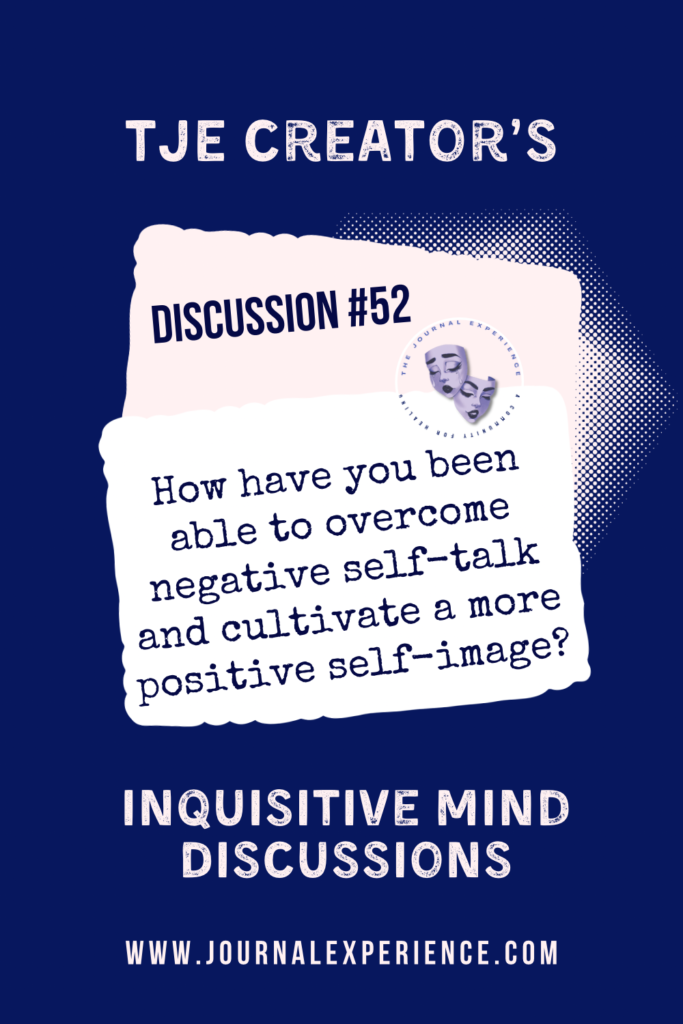Self-esteem, the belief in one’s own value, plays a crucial role in our overall well-being. It influences relationships, career choices, and even physical health.

Low self-esteem, on the other hand, can lead to feelings of inadequacy, insecurity, and depression, holding us back from reaching our full potential.
In this post, we’ll explore effective strategies for rebuilding self-esteem and how these tools can help you unlock a healthier, more confident version of yourself.
Ultimate Guide to Rebuilding Self Esteem
Low self-esteem doesn’t develop in isolation—it’s often shaped by a complex mix of life experiences and external influences.
Understanding the root causes of low self-esteem is the first step toward rebuilding it, by recognizing these influences, you can begin to break free from their hold and start the journey toward a healthier self-image.
Common Factors Contributing to Low Self-Esteem
Several factors can contribute to low self-esteem, and they often arise from experiences in both childhood and adulthood:
- Negative experiences: Traumatic events, failures, or rejections can erode self-esteem. A tough breakup, an embarrassing failure, or childhood bullying can leave lasting emotional scars.
- Critical self-talk: Constant self-criticism, such as thinking “I’m not good enough” or “I’ll never succeed,” becomes ingrained over time, undermining self-worth and making it harder to feel confident.
- Comparison to others: In today’s world, we’re constantly bombarded with images of success and perfection, especially through social media. Comparing ourselves to unrealistic ideals can result in feeling inadequate and dissatisfied with who we are.
- Unhealthy relationships: Toxic or manipulative relationships can chip away at confidence. Whether it’s a controlling partner, a dismissive parent, or critical friends, these relationships diminish our sense of self-worth.
- Physical health issues: Chronic illnesses, disabilities, or other physical limitations can cause frustration and negatively impact self-perception. Struggling with health can often make us feel weak or less capable.

If early life experiences or past relationships have wounded your sense of worth, the Healing The Inner Trauma Child (HITCH) Method offers a powerful path to reconnect with your inner resilience and begin true emotional healing.
Strategies for Rebuilding Self-Esteem
Rebuilding self-esteem is a journey that requires conscious effort and intentional practices. One of the most effective ways to begin this process is by reshaping the way we think and talk to ourselves.
Our internal dialogue—often filled with self-criticism and negativity—plays a pivotal role in how we perceive our own value.
By challenging these negative thoughts and replacing them with positive affirmations, you can gradually transform your self-image.
Positive Affirmations and Challenging Negative Thoughts
One of the first steps toward rebuilding self-esteem is reshaping your internal dialogue. The way we talk to ourselves has a profound impact on how we see the world and our place in it.
For many, low self-esteem stems from deeply ingrained negative thoughts: “I’m not good enough,” “I always fail,” or “No one cares about me.” These thoughts can feel automatic and persistent, but it is possible to challenge and change them.
Start by observing these thoughts without judgment. When a negative thought arises, ask yourself if it’s truly reflective of reality. More often than not, it won’t be.
Replace those negative thoughts with more positive and realistic alternatives. For example, instead of “I always fail,” tell yourself, “I’ve faced challenges, but I’ve also overcome many of them.”
This is where positive affirmations come in. Deliberately introduce affirmations into your daily routine. Phrases like “I am capable,” “I deserve love and success,” and “I am resilient” may not feel true at first, but with repetition, they can reshape your subconscious thoughts and boost self-esteem over time.
Setting Achievable Goals
Building self-esteem requires action, and one of the most effective ways to see tangible progress is through goal-setting.
However, when dealing with low self-esteem, it’s easy to become overwhelmed by large goals or feel discouraged by setbacks. The key is to break goals into smaller, achievable steps.
Let’s say you’ve set a goal to improve your physical fitness. Instead of aiming for an intense workout routine right away, start with a 10-minute walk each day. As you gradually increase the intensity or duration of your exercise, celebrate each milestone along the way.
This method helps to maintain momentum and ensures that you feel successful with every step, reinforcing your belief in your capabilities.
By focusing on progress rather than perfection, you shift your attention from what’s lacking to what’s being achieved. Over time, this mindset can transform the way you see yourself and your abilities.
Practicing Self-Compassion
Self-compassion is the practice of treating yourself with kindness and understanding, particularly during moments of failure or difficulty.
We often extend compassion to others but are harsh with ourselves. Learning to respond to your own mistakes and challenges with empathy can greatly improve your self-esteem.
For example, if you make a mistake at work, rather than spiraling into negative self-talk—“I always mess up,” or “I’m terrible at this”—remind yourself that mistakes are a natural part of the learning process.
Say to yourself, “It’s okay to make mistakes. I’m learning, and I’ll grow from this experience.” Treat yourself with the same understanding you would offer to a friend going through a difficult time. By cultivating self-compassion, you create a safe space for personal growth, which, in turn, strengthens your self-esteem.
Seeking Support
Building self-esteem is often easier with the help of a strong support network.
Whether it’s confiding in friends, seeking advice from family, or turning to a therapist, sharing your struggles with someone who cares can offer validation and fresh perspectives.
Support groups, either in person or online, provide a sense of belonging and community.
Knowing that others are going through similar challenges helps you feel less isolated.
Therapy, particularly cognitive behavioral therapy (CBT), can also be incredibly helpful in identifying negative thought patterns and developing strategies to overcome them.
Seeking support doesn’t make you weak—in fact, it’s an empowering step toward rebuilding your self-worth.

If you’re ready to rebuild your self-esteem after patterns of toxic dependency or emotional neglect, the Codependency Therapy | Self Love Recovery Treatment Program provides step-by-step guidance to help you regain confidence and independence.
The Benefits of High Self-Esteem
When self-esteem is high, the benefits ripple through every aspect of life:
- Improved relationships: People with high self-esteem are better communicators, have healthier boundaries, and feel secure in their relationships. They are less likely to rely on others for validation and more likely to engage in mutually supportive interactions.
- Increased resilience: High self-esteem equips individuals to handle life’s challenges with greater strength and adaptability. Failures and setbacks don’t feel like personal flaws but rather opportunities to learn and grow.
- Enhanced confidence: High self-esteem fosters a belief in one’s abilities. Confidence builds with each success, making it easier to take risks, try new things, and push beyond comfort zones.
- Greater happiness: Those with high self-esteem tend to be more content and satisfied with life. They are more likely to engage in activities that align with their values and pursue their passions.
Recognizing Low Self-Esteem in Children
Low self-esteem doesn’t just affect adults—children are particularly vulnerable to it. Recognizing the signs early can help prevent more significant emotional difficulties later in life.
- Social withdrawal: A child struggling with low self-esteem might avoid social situations or have trouble making friends. They may isolate themselves or seem unusually shy around peers.
- Excessive self-criticism: Constantly saying things like “I’m not good at this” or “Nobody likes me” is a key indicator that a child is experiencing low self-esteem.
- Avoiding challenges: Children with low self-esteem often steer clear of trying new things or engaging in tasks that seem difficult, fearing failure and rejection.
- Physical complaints: Unexplained physical symptoms like headaches, stomachaches, or frequent fatigue may be signs that a child is struggling with their emotional well-being.
Understanding the roots of self-esteem struggles early can change the future. The Webinar: Origins of Codependency and Pathological Narcissism offers valuable insights into how childhood experiences shape self-worth—and how healing truly begins.
Helping Children Build Self-Esteem
Building self-esteem in children is essential for their healthy development. Here are some effective strategies:
- Encouragement and Praise – Children need to feel valued for their efforts, not just their outcomes. When praising a child, focus on their hard work and improvement rather than perfection. Instead of saying, “You’re so smart,” try, “I’m proud of how hard you worked on this problem.” This type of praise reinforces that their value isn’t tied to the result but to their determination and growth.
- Teaching Coping Skills – It’s important to help children develop healthy coping mechanisms for dealing with challenges. Teaching them how to handle failure or disappointment constructively—such as encouraging problem-solving or teaching resilience—gives them the tools they need to manage their emotions and challenges.
- Fostering a Positive Environment – Children thrive in environments that are supportive and nurturing. Create a home atmosphere that is filled with love, encouragement, and positive reinforcement. Limit exposure to critical or negative influences, and allow space for children to express their thoughts and feelings freely.
Overview
Rebuilding self-esteem is a journey that requires effort, patience, and compassion.
By practicing positive affirmations, challenging negative thoughts, setting achievable goals, fostering self-compassion, and seeking support, you can begin to reshape your self-perception.
High self-esteem leads to improved relationships, increased resilience, and greater happiness.
When it comes to children, being proactive about recognizing signs of low self-esteem and fostering a positive, supportive environment can help them build a strong foundation of self-worth that will carry them throughout life.

Subscribe to our newsletter and become a member to gain access to valuable resources, expert advice, and support. Together, we can foster a place where respect is mutually valued and celebrated in all relationships. Let’s build a brighter, more respectful future, one connection at a time.